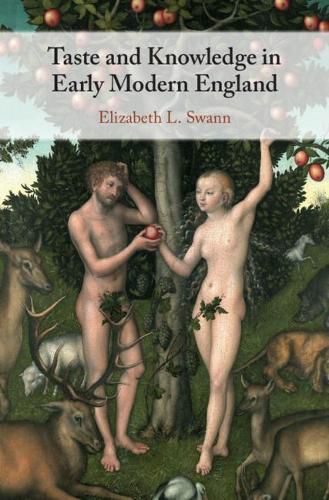Readings Newsletter
Become a Readings Member to make your shopping experience even easier.
Sign in or sign up for free!
You’re not far away from qualifying for FREE standard shipping within Australia
You’ve qualified for FREE standard shipping within Australia
The cart is loading…






Elizabeth Swann investigates the relationship between the physical sense of taste and taste as a figurative term associated with knowledge and judgment in early modern literature and culture. She argues that - unlike aesthetic taste in the eighteenth century - discriminative taste was entwined with embodied experience in this period. Although taste was tarnished by its associations with Adam and Eve’s fall from Eden, it also functioned positively, as a source of useful, and potentially redemptive, literary, spiritual, experimental, and intersubjective knowledge. Taste and Knowledge in Early Modern England juxtaposes canonical literary works by authors such as Shakespeare with a broad range of medical, polemical, theological, philosophical, didactic, and dietetic sources. In doing so, the book reveals the central importance of taste to the experience and articulation of key developments in the literate, religious, and social cultures of the sixteenth and seventeenth centuries.
$9.00 standard shipping within Australia
FREE standard shipping within Australia for orders over $100.00
Express & International shipping calculated at checkout
Elizabeth Swann investigates the relationship between the physical sense of taste and taste as a figurative term associated with knowledge and judgment in early modern literature and culture. She argues that - unlike aesthetic taste in the eighteenth century - discriminative taste was entwined with embodied experience in this period. Although taste was tarnished by its associations with Adam and Eve’s fall from Eden, it also functioned positively, as a source of useful, and potentially redemptive, literary, spiritual, experimental, and intersubjective knowledge. Taste and Knowledge in Early Modern England juxtaposes canonical literary works by authors such as Shakespeare with a broad range of medical, polemical, theological, philosophical, didactic, and dietetic sources. In doing so, the book reveals the central importance of taste to the experience and articulation of key developments in the literate, religious, and social cultures of the sixteenth and seventeenth centuries.